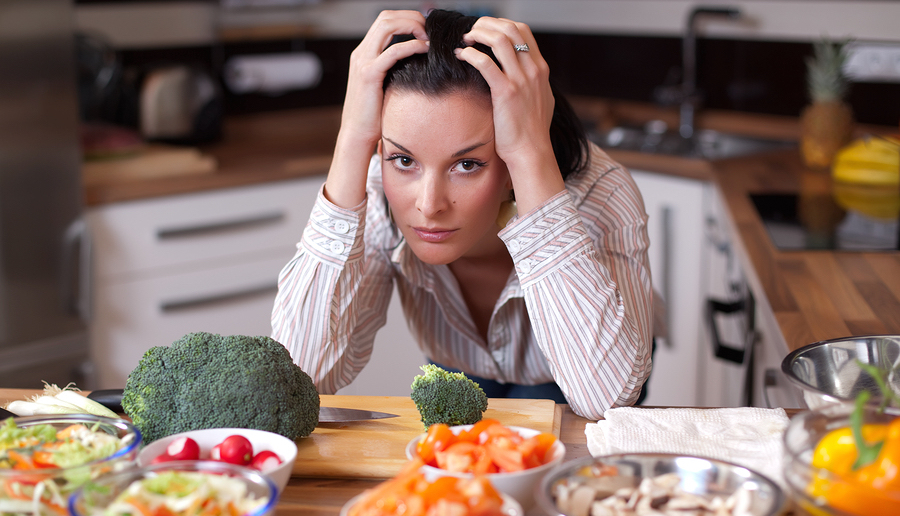During the holiday season, many of us think about the obligations we need to fulfill and the stress associated with those commitments. Good nutrition can help us manage the impact of stress on our bodies, but stressful times are often when our eating habits suffer. While there is no one food that will help you manage stress, the following tips can help lessen the impact of stress on your life.
- Don’t skip meals. If you normally eat three times a day, keep doing so even when stressed, and try to eat around the same time each day. Skipping meals may lead to overeating later. If possible, pack a lunch to take with you when running errands so you don’t skip a meal or purchase a less healthy option.
- Make sure you are getting healthy fats. Our bodies want higher calorie items during times of stress, and if you are already depriving yourself of foods rich in healthy omega-3 fats like fish, walnuts, and flax seeds, you might trigger food cravings.
- Trade added sugars and other refined carbohydrates for high fiber whole foods. Our bodies need a regular source of glucose, or blood sugar, during times of stress. If we reach for high sugar items, those usually do not fill us up, so we overeat, and may end up feeling more worn-down a few hours later. The fiber in foods such as whole grains, legumes, fruit, and starchy vegetables will help you feel full, provide the right amount of energy, and not make the body work too hard to deal with a high influx of blood sugar.
- Include vegetables and fruit at your meals. Fruits and vegetables contain antioxidants, which when eaten can counteract the harmful effect of stress on our bodies.
- Keep snacks with protein and high fiber carbohydrates in stock. Sometimes, despite our best efforts, our meals get delayed and we must snack to tide us over. It helps to have healthy snacks nearby, such as nuts, nut butters on whole grain crackers, cheese sticks and fruit, or high protein-low added sugar yogurt.
- Avoid large doses of caffeine. Large amounts of coffee, soft drinks, and energy drinks might make you more anxious, and less able to handle stress. Plus, most soft drinks and energy drinks are high in calories. Stick with your usual amounts of coffee, tea, and/or the occasional diet soft drink so you don’t withdraw from caffeine or get too much.
- Avoid coping with stress by eating. Some people snack more or eat larger portions of high fat or sugary foods when they are stressed. Try making a list of activities that you could do instead of snacking, such as taking a walk, playing with a pet, listening to music or practicing deep breathing.
- Strive for improvement, not perfection. The above suggestions are just that—not commandments. Seeking perfection in eating habits will only cause more unnecessary stress.
For more information on how to eat well while dealing with stress, reach out to a registered dietitian at your local VA medical center or clinic!

Topics in this story
More Stories
VA and Veterans Yoga Project are working together to make more Veterans aware of the benefits of yoga while offering more classes.
Believing in better days ahead, Army Veteran Mario Reyes was among the first to graduate from Houston VA’s Domiciliary program.
Rumi’s "The Guest House" invites us to welcome each emotion as a teacher, even the unexpected ones. Listen and reflect for this week's #LiveWholeHealth practice.






